‘Don’t call us turkeys voting for Christmas’: Welsh area ‘showered with EU cash’ still thinks Brexit is a good idea
Blaenau Gwent was once ‘the crucible that drove the industrial revolution’. Now its people feel ‘desperate’ – and unrepentant about voting for Brexit. Adam Lusher meets them

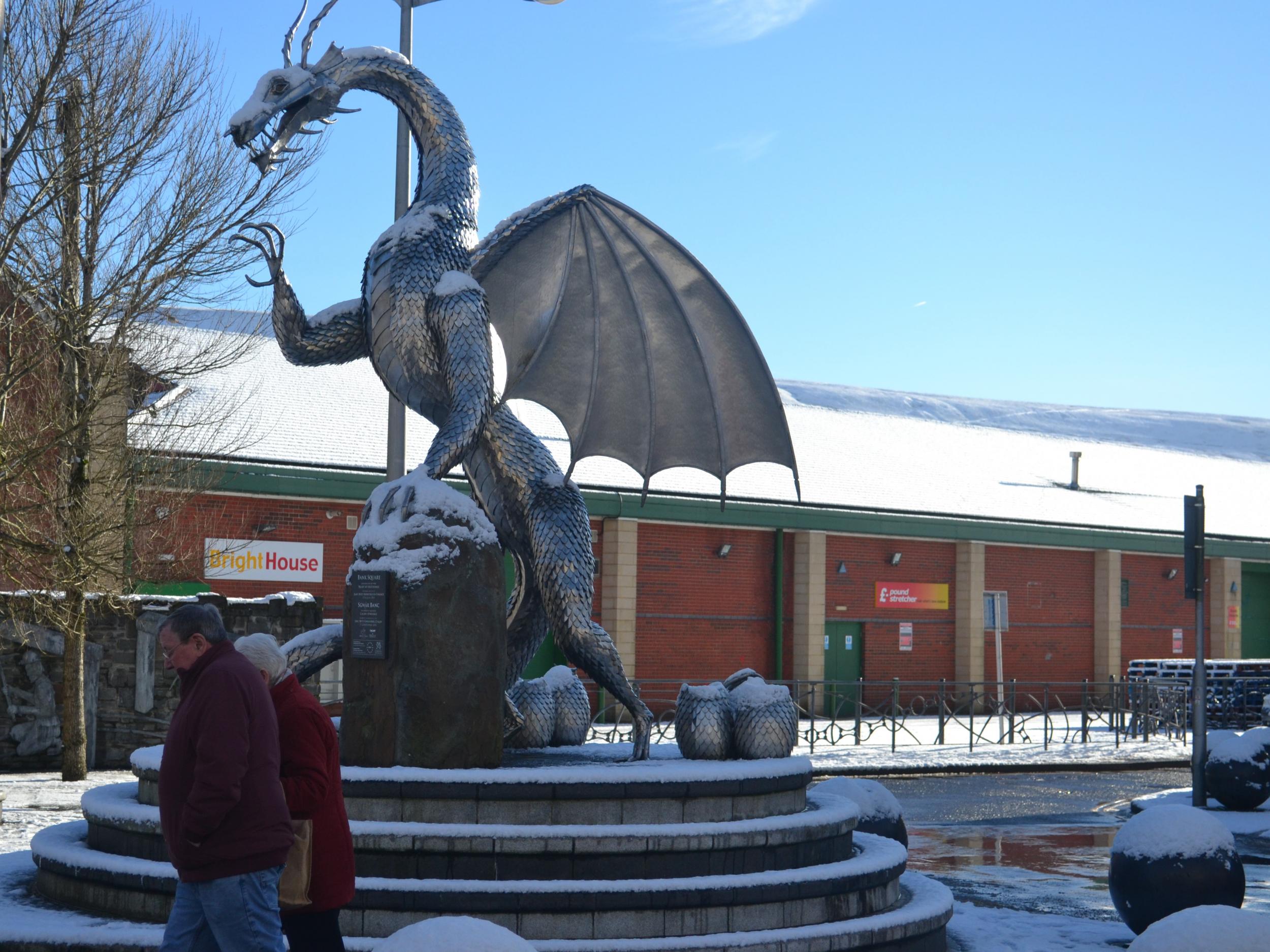
This was the crucible that drove the industrial revolution, once.
It was a valley blessed with mineral wealth in abundance, enough for men to dig out 2 million tons of coal a year.
The steelworks in Ebbw Vale could lay claim to being the biggest in Europe: 11,000 people working there in the 1960s, amid “the noise from the tinplate lines, the smell of acid used to clean steel coils, the sight of a hot ingot, as bright as the sun, being reduced to a thin steel slab”.
As one of its former MPs would recall, in Blaenau Gwent, in the south Wales valleys, the work was hard – and dangerous – but it built communities.
Yet the steelworks have gone, demolished in 2002. The mines have shut.
Marine was the last pit to go, closed in 1989. Its only visible remains lie in a patch of wasteland beyond a dead-end road. Two large wheels rise above the ground. Once they were in constant motion, bringing up the coal and sending down the men to work in a pit that operated around the clock. The wheels have been sawn in half, encased in concrete, immobilised forever. Instead of the sounds of work, there is silence.
Where once Blaenau Gwent was full of the signs of heavy industry, now it is peppered with signs of a different kind: showing the stars of the EU flag, promising economic rebirth, offering uplifting slogans about “investing in your future”.
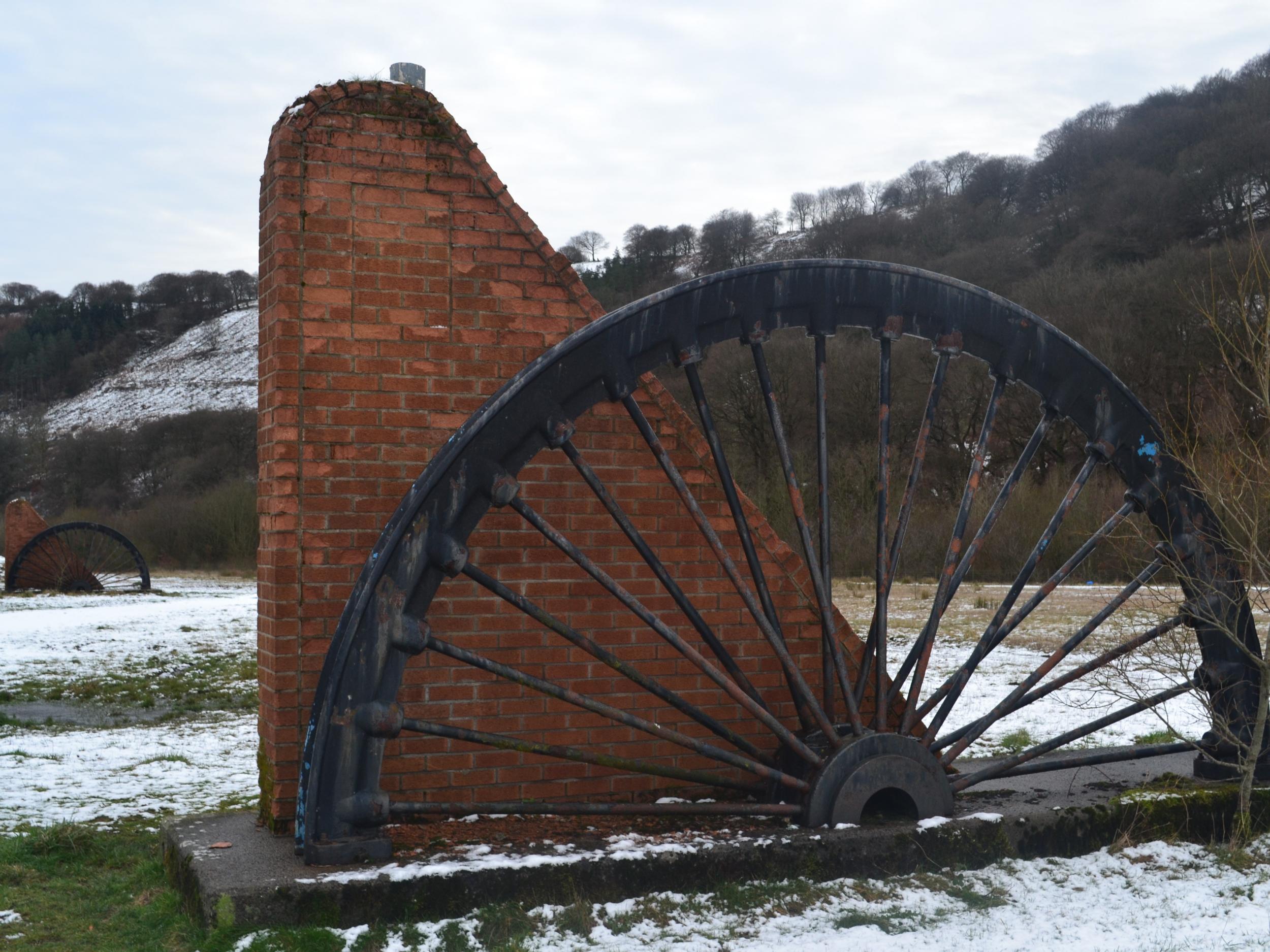
And herein lies the paradox. Blaenau Gwent is in the heart of a region, the south Wales valleys, that has received some £4bn of EU funding over 20 years, and yet it is also the local council area that recorded Wales’s heaviest Leave vote, with 62 per cent backing Brexit in 2016.
Reporters have visited from London, minds boggling at the place “showered with EU cash” that voted Leave, concluding – some of them – that the people here must be Brexit “turkeys who voted for Christmas”.
They are not hard to find, these “turkeys”. You just back out of the dead-end road leading to the remains of Marine colliery and drive for a few minutes to the Legion pub in Cwm, where, for the benefit of the lunchtime drinkers, the widescreen TV is tuned to a radio station playing the hits of yesteryear.
Dale Owen, 47, was a boy when the miners went on strike and the last pits closed under the government of Margaret Thatcher. Too young to follow his father and grandfather down the pit, he became a painter and decorator.
“I’m fed up and I voted out,” he says. “Year in, year out, we get poorer. They closed all the pits, closed the steelworks. What are we left with? A few food factories, and streets where shops are closing down left, right and centre.”
“Where’s it all gone?” he asks, when you mention the EU money. “Regeneration projects? Where’s the regeneration? We’ve had 40-odd years of the EU. I thought, f*** it, have a change. It can’t get any worse.”
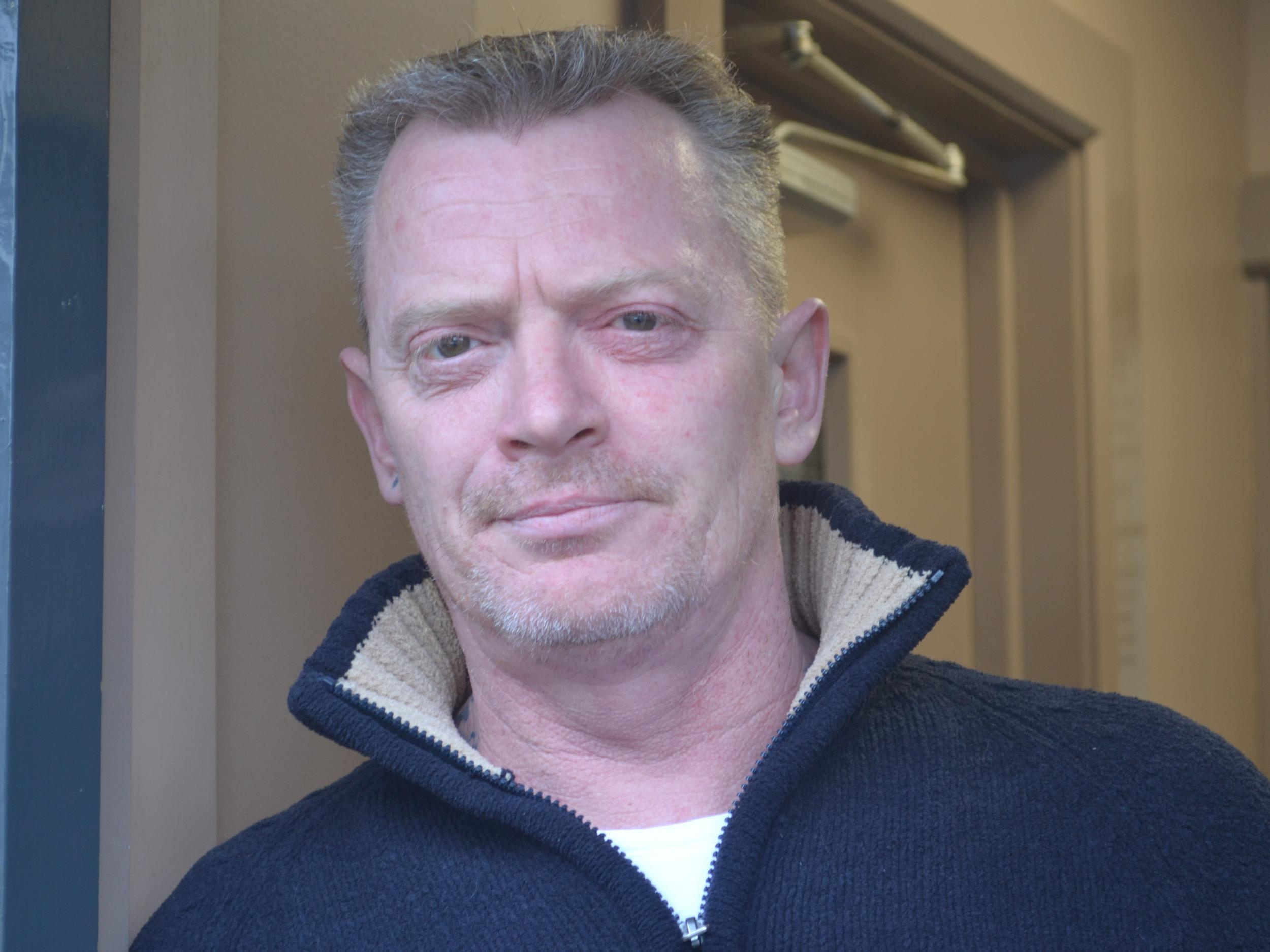
Mix in a few comments from others, about having to take rules from countries that have “forgotten who liberated them” during the war, and you have what could be portrayed as the vote of irrational rage, biting the EU hand trying to feed them.
There’s just one big problem with such dismissiveness: even someone who played a big part in getting EU money to Blaenau Gwent sympathises with what Owen and others are saying.
In the 1990s, Victoria Winckler was a leading member of the taskforce that secured €1.9bn (£1.6bn) of EU funding for west Wales and the valleys, granted for the years 2000-06 on the basis that this area was one of the most deprived in Europe.
Now, as the director of the Bevan Foundation think tank, she has written that if the Welsh valleys were showered with cash, “it appears to have gone straight down the drain”.
The woman who helped deliver the EU money says the Brexit-backers of Blaenau Gwent were not fools; they were people who “voted for the better future that the EU had failed to deliver”.
Confessing her own disillusion, Dr Winckler tells The Independent: “You can point to a number of shiny EU projects. You can say, ‘Oh look, you have got a dual carriageway, some nice sculptures in your town centre.’
“But that has not made a material difference to people’s lives. They are still struggling to find work, struggling to make ends meet.”
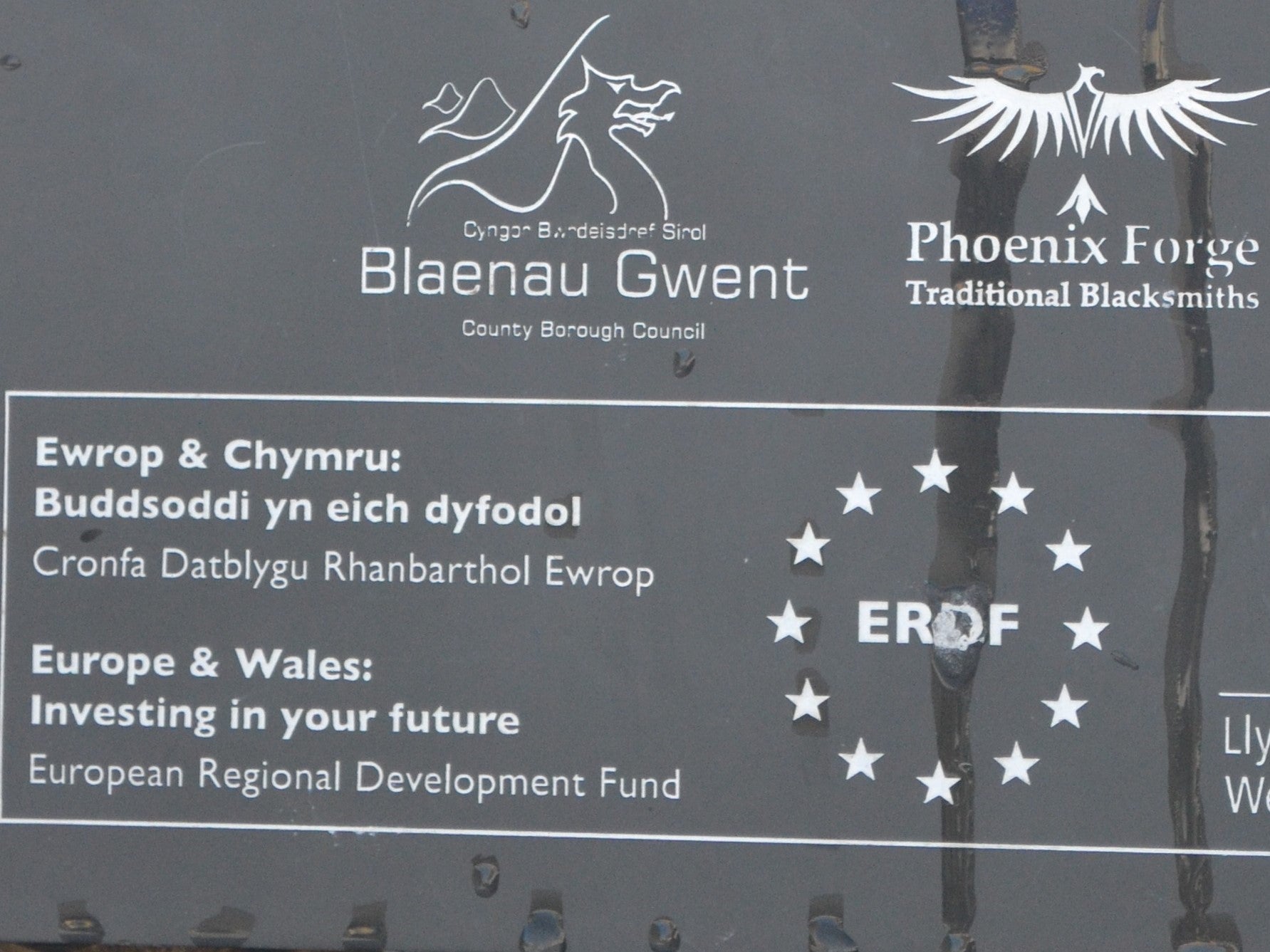
To call these people turkeys voting for Christmas, she says, is patronising: “It makes the assumption that EU funding is always good, and people who had it but still voted Leave must be stupid. It blames people who took a rational decision.”
Winckler is backed by Professor Roger Awan-Scully of Cardiff University, who has extensively researched the Leave vote in the valleys.
He thinks they took what, from their perspective, was a pretty rational decision: “People who felt they had nothing left to lose, rolled the die and tried change.”
Or, as one senior Remain campaigner said in the bitter aftermath of defeat: for these people, fear of Brexit bringing economic disaster “wasn’t credible, because they felt their lives were already s***”.
There are caveats, of course. It didn’t help, says Winckler, that Welsh officials had an unfortunate habit of “overpromising on EU funding, saying it was going to ‘transform’ [the area] when it never could.”
That, she says, just made it even more tempting to blame “that lot over there with their bent bananas”.
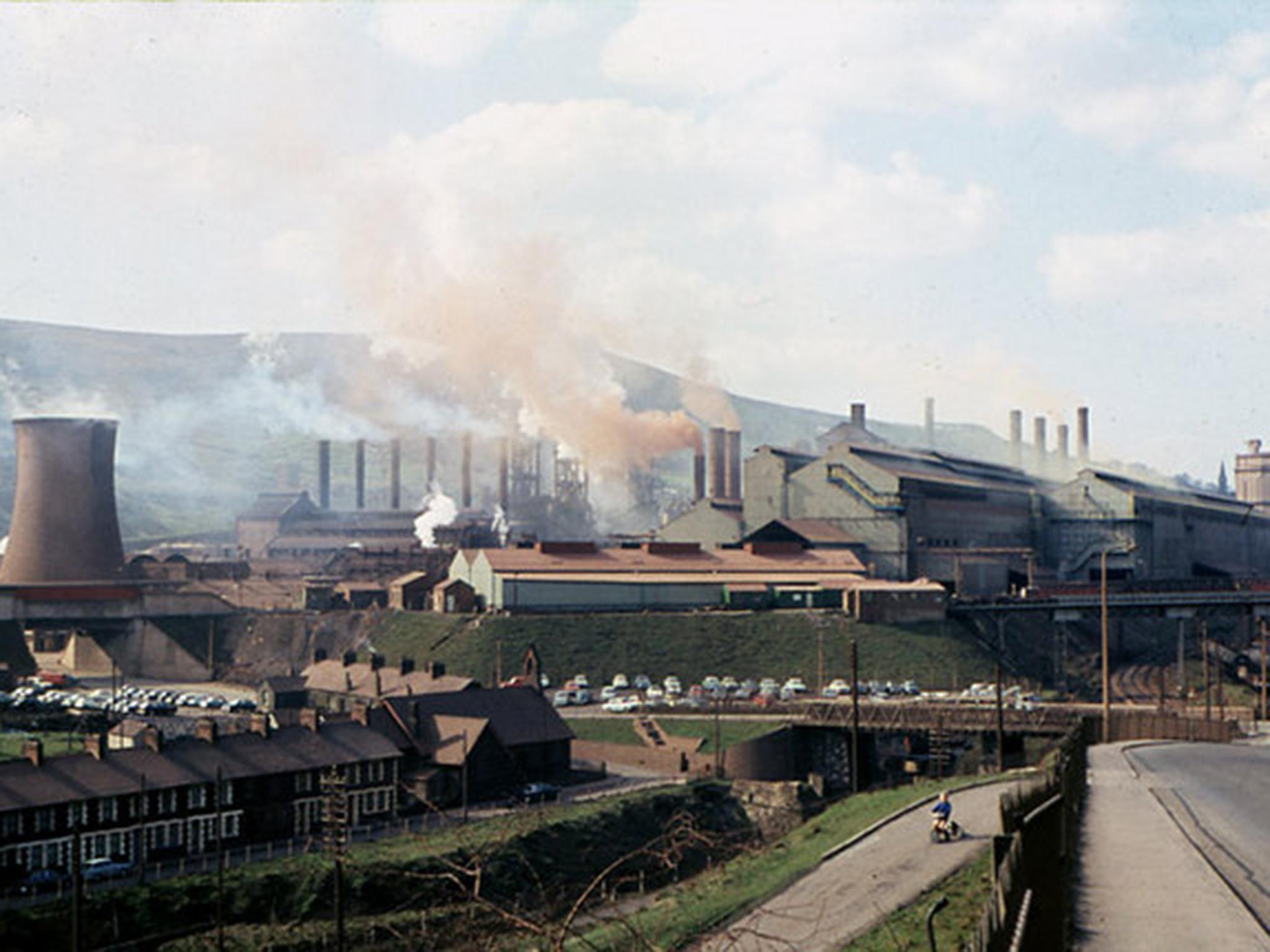
“The EU,” says Winckler, “has been wrongly blamed for all the ills that have affected Blaenau Gwent and other areas like it. There was a failure of UK government policy, from all parties, a long-term restructuring of the UK economy in which, to generalise very crudely, the regions were left to wither and die, while London and the south prospered. On top of which came a thick layer of austerity”.
But both Awan-Scully and Winckler are pretty scathing about the Remain campaign as fought in 2016.
“The Welsh Remain campaign,” argues Winckler, “basically said we should be grateful for what at the end of the day are quite small crumbs off the [EU] table that haven’t really made much difference to people’s everyday lives. Remain means more of the same, and in Blaenau Gwent that’s more austerity, more deprivation, more factories closing. Why would you vote for that?”
Perhaps, then, if a Final Say referendum ever materialises from the current chaos – and perhaps even if it doesn’t – some lessons should be learned from what are called, with maybe a whiff of condescension, “the left-behind communities”.
At HQ level there might also have to be an understanding of what happened when, as one campaigner put it, “Remain was fought in the spirit of a gentleman’s cricket match against a bunch of lunatics on day release from a life sentence of being themselves.”
But as well as pointing to micro-targeted social media ads and broken Brexit campaign spending limits, Remainers might want to look at how to fight a better ‘ground war’ – one that doesn’t complacently dismiss Leave voters in places like Blaenau Gwent fools.
It is true that in Blaenau Gwent you can, if you look hard enough, find Brexit voters expressing, if not full-on “bregret”, then at least ambivalence over how they were sold what Winckler calls the Leave campaign’s “very simple and attractive promises”.
Andrew, 37, an electrician, won’t give his surname but will observe: “We got sold all this money, all those savings. It was all lies. And then the two people [Boris Johnson and Michael Gove] who campaigned for it, up and left straight away.”
But it does seem that for every Andrew, you can find a Steven Roberts, 57, of the Cwmglo Jewellery and Fashion shop, cafe and art gallery.
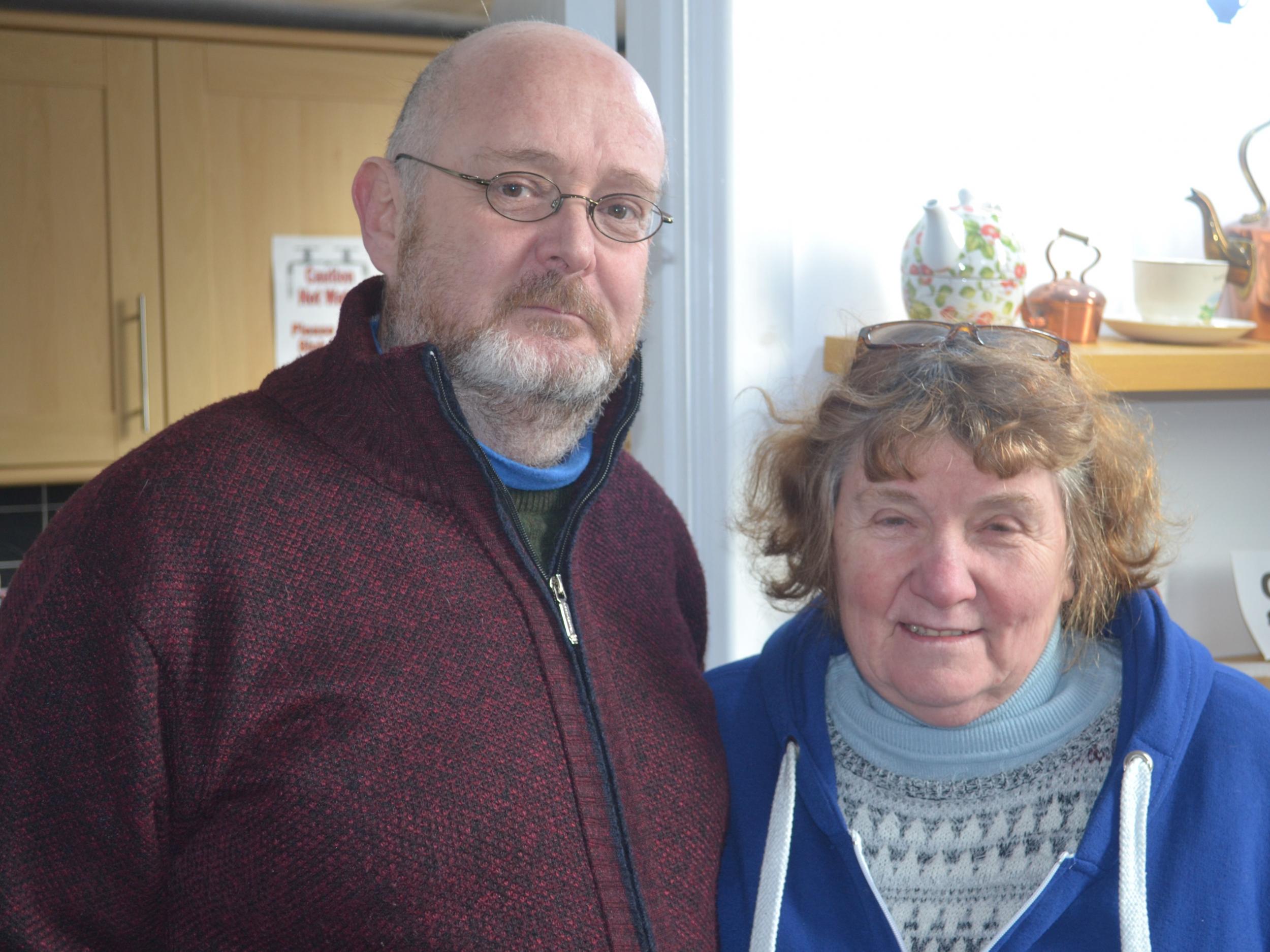
“I voted Remain,” he says, “But if I had to choose now, I would probably vote Leave. Over the past 30 to 40 years, Blaenau Gwent and the south Wales valleys have been absolutely devastated – raped and left to rot.
“The people here have been shafted for so long. If we leave, we can’t do any worse than we are doing at the moment. We are not turkeys. We are desperate people. Very desperate.”
Everyone here knows about the EU funding. Everyone derides it. The ungrateful natives even have the temerity to mock the shiny new roads that were built for them.
The Heads of the Valley dual carriageway, upgraded with £79m of EU money, is dismissed as “the Blaenau Gwent bypass, the fast road out to the Midlands”, useless for low-wage workers trying to get to work when bus services are “always being cut”.
“They’ve showered us with cash and it’s gone on the wrong things,” says a woman at the food bank, in Beaufort, a village above Ebbw Vale.
For Sarah, 47, the money has done nothing to change the reality facing her and her three children.
A taxi driver, the daughter of a steelworker and granddaughter of a miner, she worked all her life, until she got breast cancer. Now with her chemotherapy finished, Sarah faces reconstructive surgery and a massive drop in her employment support allowance. Hence the food bank trip.
“There’s nothing left for people in Ebbw Vale,” she says. “No future for my children, no secure jobs, just zero-hours contracts. My 19-year-old hasn’t had a full-time, settled job since he left school. He’s suffering with depression.”
All the signs are that mental illness is on the rise in Blaenau Gwent, while average male wages have stagnated since the steelworks shut. By the time of the referendum, a man on median wages was £71 a week worse off in real terms than in the early 2000s.
People with jobs sometimes have to resort to the food bank. Some families need charitable assistance before they can send their children to school in proper shoes and uniforms.
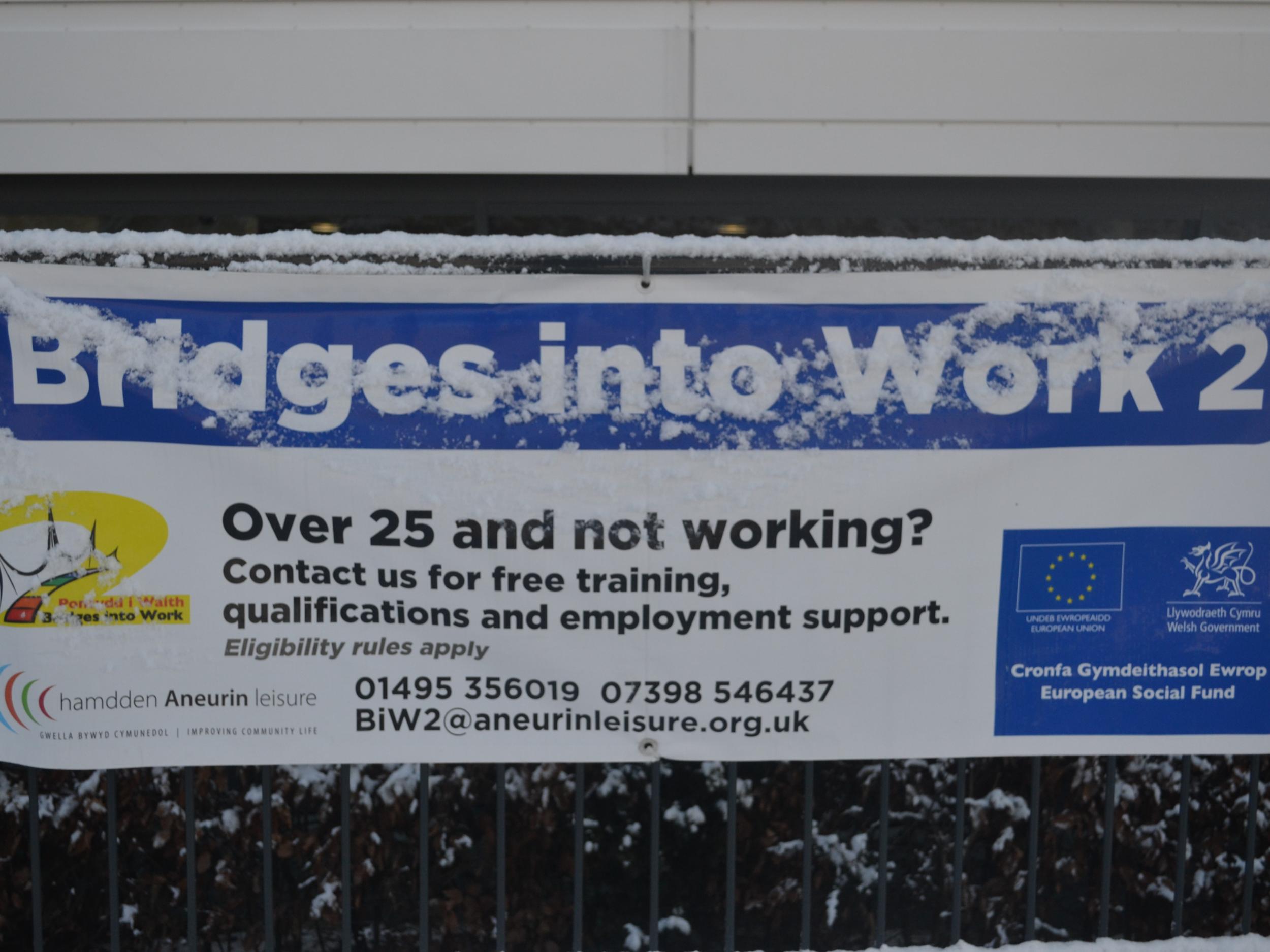
And, according to Sarah, to a community at “rock bottom”, in urgent need of economic resuscitation, the EU money has bought “shiny ornaments in the town centre”.
Everyone tells you about the shiny dragon in Ebbw Vale town centre. It is reached by walking up the main street, past signs of rampant fuel poverty blighting an area once famous for coal production: “Pay gas and electric here” says the note in the window of Cash & Xchange. “Sell your stuff, buy it back later, for cash when you need it,” promises Cash Generator.
And then, after just two vape shops, the dragon is there: rising 13ft high on its hind legs, a glittering vision of resurgent power fired by the past glories referenced in the artwork’s title: Heart of the Furnace.
“Yet another positive example of how Welsh government and EU funds are benefiting the region,” was the verdict of Jane Hutt, the Welsh government finance minister who unveiled it in 2014.
If you look at the background, you can see that the dragon is flanked on one side by a sign for BrightHouse and on the other by a banner for Poundstretcher, neither suggestive of an economy roaring back to greatness.
Of course, some of the results of local council, Welsh government and EU regeneration funding are, as Winckler and others point out, invisible to the naked eye.
Considerable amounts of money have, for example, been spent on apprenticeships. In other words, you can choose how to interpret the banner outside the new Ebbw Vale Sports Centre, built on part of the old steelworks site.
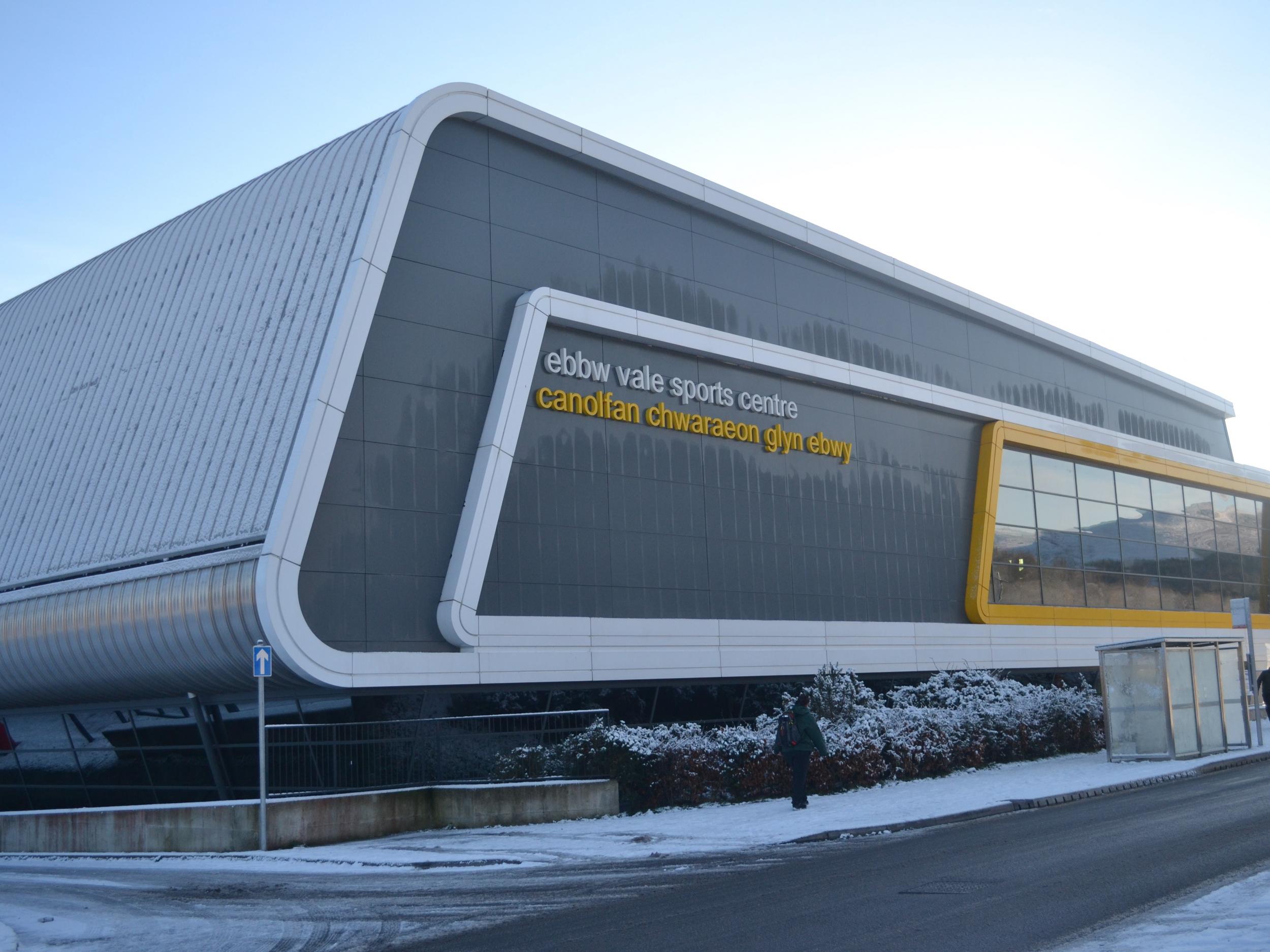
The banner advertises “Bridges Into Work 2”, free training for the over-25s and unemployed, thanks to money from the European Social Fund.
Perhaps this shows the EU properly addressing Blaenau Gwent’s underlying problems. But it could also be read as a confession that a shiny new sports centre cannot replace the jobs lost when the steelworks shut – even if the new building gets listed on the internet as “a modern leisure hub with a pool and water slides”.
There is a similar ambivalence about the £21m Ebbw Fawr Learning Community, the new “super-school” that also occupies part of the old steelworks site.
In the Cwm Legion, Owen talks proudly of “going skint to put my daughter in university”. But then he adds: “I told her to get out of this area. I don’t want her struggling like I did. There is no future for kids here. They turn to drink or drugs.”
He is not the only one asking what lies in store for their children once they leave their shiny new super-school. They all know this isn’t just the EU’s fault. Many are more angry at local politicians, for a perceived lack of strategic vision in spending the money, than they are about the EU that granted the funds.
In the former constituency of Aneurin Bevan, the people of Blaenau Gwent dismiss nearly all modern politicians as hopelessly out of touch with the struggles of their community.
“They might as well live on the moon as far as I am concerned,” says Sarah in the food bank.
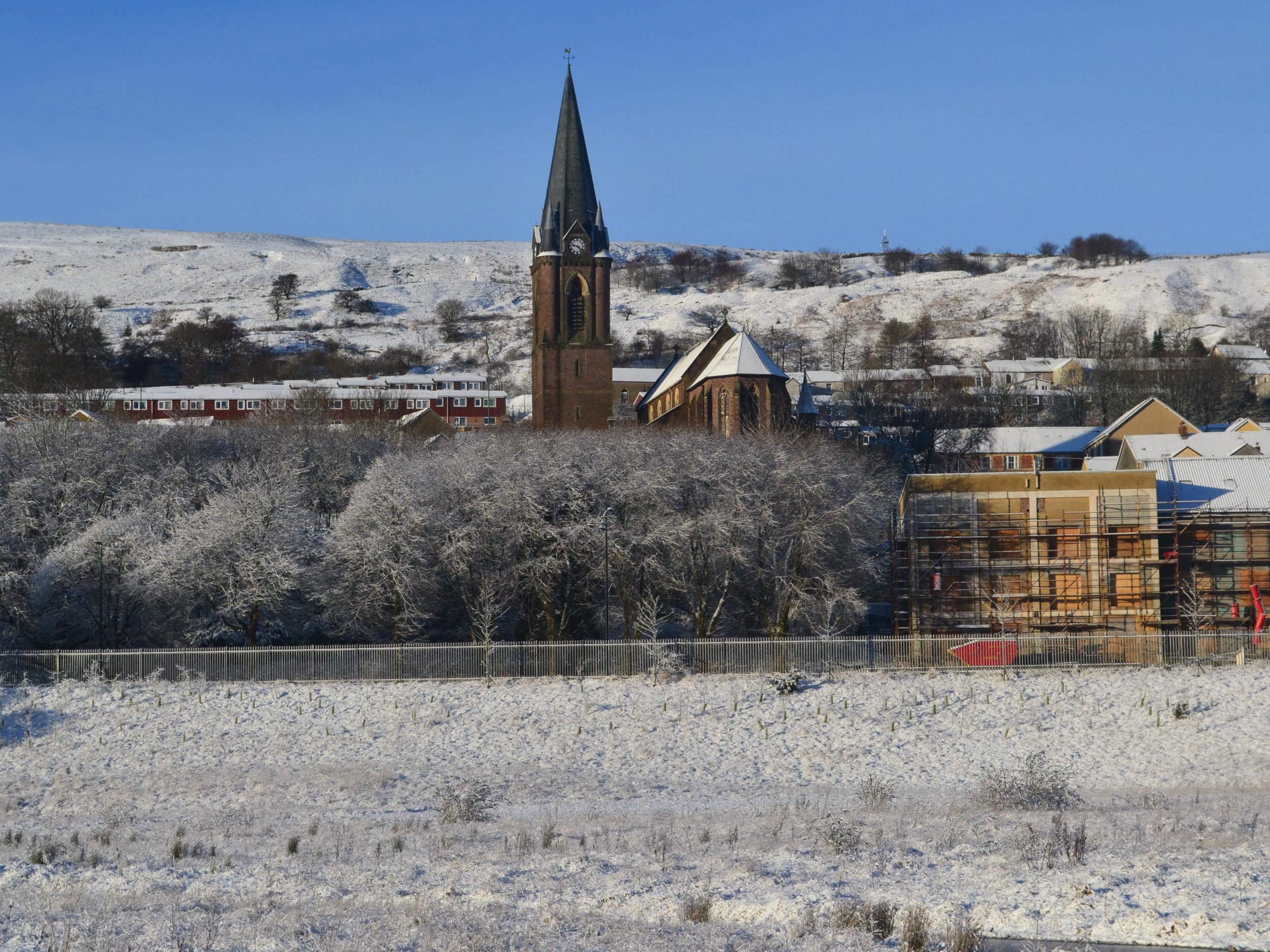
She talks of backing Brexit as “a rebellion. We had just had enough. The system had to change.”
You do worry, though, about how, post-Brexit, “the system” might change for the even worse. How would money be found to help places like Blaenau Gwent if “rolling the die” and voting Leave pushed the entire British economy into a no-deal, cliff-edge Brexit? Who in a post-Brexit UK would be strong enough to defend some of the values that are central to EU membership?
Rather pointedly, Winckler stresses “the EU’s fairness role, which means one country can’t undercut another in terms of how it treats its workers”.
The people of Blaenau Gwent are smart enough to see through the likes of Boris Johnson and Jacob Rees-Mogg, men not exactly known for their instinctive understanding of, or sympathy for, the struggling ex-miner or former steelworker.
But, given the hand dealt them by many conventional politicians over many decades, you can’t be entirely surprised by the response when you ask about the risks of being delivered into the clutches of Brexiteers who arguably couldn’t care less about them.
“Nobody else cares about us either,” says Roberts.
If you are a Remainer hoping to win a second referendum, you might have to consider whether he has a point.
If you are seeking “turkeys”, you might like to wonder whether, come Brexit, no Brexit or Theresa May compromise, a community that helped make Britain “great” deserves much better – from its own government as much as the EU – than more of the same and a shiny dragon.
Join our commenting forum
Join thought-provoking conversations, follow other Independent readers and see their replies
Comments